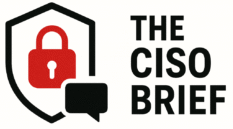Summary Points
-
Sanctions Imposed: The U.S. Treasury’s OFAC sanctioned North Korean front company Korea Sobaeksu Trading and three individuals, targeting fraudulent IT schemes designed to generate revenue for Pyongyang and evade sanctions.
-
Global Threat Assessment: The North Korean regime deploys skilled IT workers worldwide to infiltrate companies using fraudulent identities, contributing to hundreds of millions in illicit earnings for regime-funded WMD programs.
-
Enforcement Actions: Recent activities include a federal prison sentence for Christina Marie Chapman, who operated a laptop farm enabling remote work for North Korean IT workers, netting over $17 million in illegal funds.
- FBI’s Findings: The FBI confiscated 90 laptops from Chapman, revealing extensive operations that exploited over 300 U.S. companies and government agencies, further complicating the security landscape amid sanctions.
Key Challenge
On July 25, 2025, the U.S. Department of the Treasury’s Office of Foreign Assets Control (OFAC) sanctioned the North Korean front company Korea Sobaeksu Trading Company and three individuals—Kim Se Un, Jo Kyong Hun, and Myong Chol Min—for orchestrating a fraudulent remote IT worker scheme aimed at generating illicit revenue for the DPRK regime. This scheme, characterized by the deployment of North Korean IT professionals to various countries, including China and Russia, leveraged fraudulent identities and documents to infiltrate U.S. companies. OFAC’s Director, Bradley T. Smith, emphasized the commitment to hold accountable those who undermine global supply chains, thereby supporting the North Korean regime’s destabilizing activities.
The intricate operation not only involved moving skilled workers across borders but also extended to manipulating technology to extract sensitive data and financial resources from over 300 American enterprises, with some attempting to access U.S. government jobs. This aggressive revenue stream reportedly amassed more than $17 million for both the North Korean government and Christina Marie Chapman, a 50-year-old Arizona resident who facilitated the operation via a laptop farm. Following her guilty plea, Chapman was sentenced to 8.5 years in prison, underlining the significant legal repercussions for domestic involvement in international cybercrime as highlighted by Acting Assistant Attorney General Matthew R. Galeotti, who underscored the extensive damage inflicted on American corporate integrity and security.
Risks Involved
The recent sanctions imposed by the U.S. Department of the Treasury against a North Korean front company and its operatives illuminate a significant risk landscape for various sectors, as the nefarious scheme of deploying fraudulent foreign IT workers to infiltrate domestic systems poses grave threats to operational integrity, data security, and financial stability. Businesses—ranging from major media networks to automotive manufacturers—face heightened vulnerabilities as these infiltrations can lead to the exfiltration of proprietary information, compromise sensitive client data, and disrupt supply chains, fostering distrust among partners and customers alike. Furthermore, the insidious nature of such cyber incursions may catalyze a ripple effect, damaging reputations and potentially resulting in regulatory scrutiny or sanctions for those unwittingly associated. Hence, organizations must remain vigilant and adopt robust cybersecurity measures to mitigate the extensive repercussions stemming from this global cybercrime nexus.
Possible Next Steps
The intricacies of U.S. sanctions demand urgent and knowledgeable responses, particularly in light of the troubling collaboration with North Korean entities.
Mitigation Steps
- Conduct comprehensive audits
- Strengthen compliance protocols
- Utilize advanced detection technologies
- Enhance employee training
- Establish incident response plans
- Engage legal advisors
NIST Guidance
The NIST Cybersecurity Framework (CSF) emphasizes a proactive stance towards risk management and compliance. For further specifics, refer to NIST Special Publication 800-53, which outlines robust security controls necessary for mitigating risks associated with unauthorized activities and sanction violations.
Advance Your Cyber Knowledge
Discover cutting-edge developments in Emerging Tech and industry Insights.
Learn more about global cybersecurity standards through the NIST Cybersecurity Framework.
Disclaimer: The information provided may not always be accurate or up to date. Please do your own research, as the cybersecurity landscape evolves rapidly. Intended for secondary references purposes only.
Cyberattacks-V1

